Dairy 3A Screeners
3-A sanitary vibratory screeners are the best option for removing impurities from milk, cream, cheese, and other dairy products because the vibration reduces pooling and allows more flow-through per square inch. Forced screening is not recommended as screen breakages are the second most common source of metal contaminants in dairy products (more on this in the Costco section below). As with most equipment we sell, these gap-free screeners have been optimized for the application and are available in sizes from 24 to 60 inches in diameter.
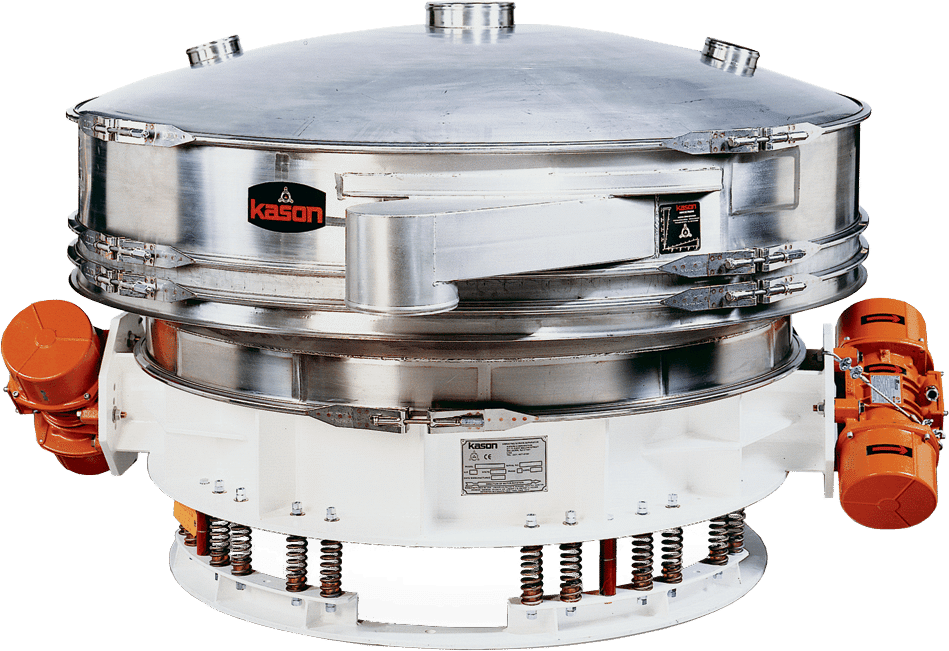
Designed to scalp oversize particles as small as 38 microns (400 mesh) from dry bulk materials or solids-laden slurries, this unit can be disassembled without any tools for rapid sanitizing. The interlocking flange of the screen frame completely encompasses the support ring of the screen, allowing the wire mesh of the screen to extend entirely to the interior walls of the frame, eliminating the gap found in conventional screeners where materials could accumulate.
The sanitary, gap-free design can eliminate contamination caused by bacterial growth while also improving sanitizing efficiency, making it suitable for food, dairy, and pharmaceutical products. The screens are mounted on support rings using FDA-approved epoxy and sealed with FDA-approved gasket material. They can also be provided with a mesh-tolerance certificate. The wire mesh screening material is available in 304, 316, and “magnetic” 400-series stainless steel that can be captured by a downstream magnet if broken. They can also be equipped with either single or twin imbalanced-weight gyratory motors and can be supplied with a dust-tight cover.
Low Profile Option
The low-profile option, also called a check-screener, uses two unbalanced-weight gyratory motors located on opposing exterior sidewalls instead of a single motor positioned below the screening chamber, which greatly reduces the minimum height requirement. This low-profile configuration allows on-size particles to pass quickly through the screen in a vertical discharge path at higher rates than circular screeners that have centrally mounted gyratory motors and horizontal discharge paths. Check-screeners do not have a discharge for sorting and is only for catching contaminants, so any contaminants/oversize material must be manually removed or eliminated using a vacuum.
A Word About Screeners and Costco’s X-Ray Exception
Although untrue, Costco believes that x-ray cannot find metals in dairy products, so they provided an exception in their universal x-ray requirements for suppliers. On these grounds they said dairy producers could use screeners instead of x-ray. If satisfying Costco’s requirements is your primary goal, these vibratory screeners are the safest to use. But if foreign material contamination is a high priority for you, we recommend using x-ray anyway, because broken screens are the largest cause of metal contaminants in dairy products, after mixers. If the cost of x-ray is prohibitive for your company, a cheaper precaution is to use a centrifugal sifter with a mesh screen. But either way, the mesh gap needs to be smaller than the maximum contaminant size.
If you have any questions or would like a quote, simply fill out the form below or give us a call!
Related Equipment
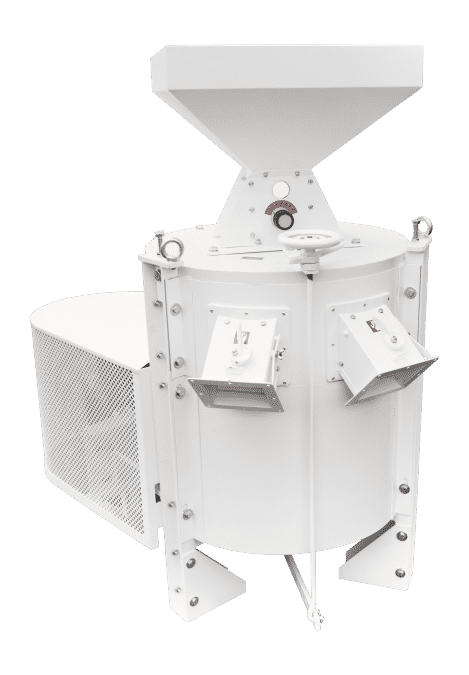
Continuous Commercial Flour Mill
The continuous Commercial Flour Mill (Europemill 600 and 950 mm W) is a horizontal mill designed with triangular shape and is used in in many plants for decentralized production. The Industrial Flour Mill isn’t limited to just flour though – this versatile mill tackles many other applications such as hulling chickpeas and milling cereals, wheat, spices, buckwheat, rye and other grains. Comparable to the Commercial Flour Mill, which is the standalone unit, the continuous model fits in an integrated system with product delivery and takeaway, dust collection, and sifting.
Engineered to retain all natural fibers, vitamins, and minerals during the milling process, the Industrial Flour Mill utilizes traditional stone millstones, making it ideal for health foods. Designed to be placed in continuous production areas, these models can be installed next to one another. Give us a call or fill out the form below to learn more about this mill or how we can automate and streamline your process.
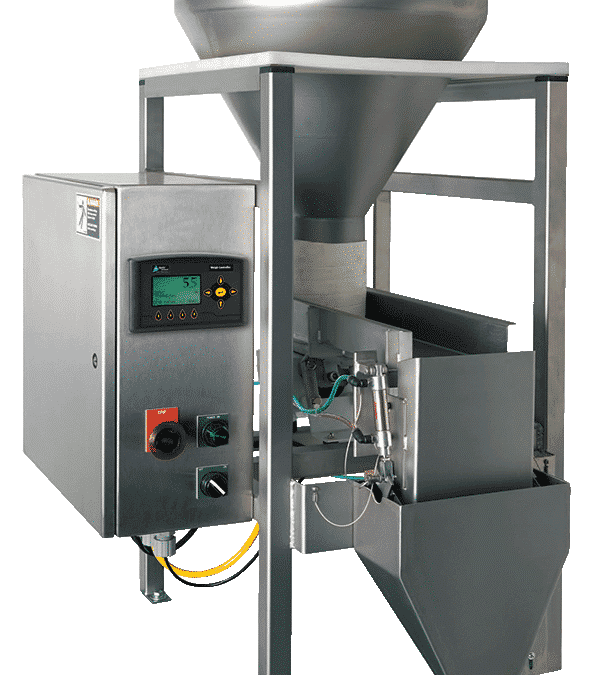
Vibratory Feeders
With many configurations and models available, vibratory feeders can accurately dispense virtually any product into containers or other vessels for mixing or further processing. Several options are available in each of the divisions below to accurately dispense product in the needed increments whether grams or hundreds of pounds. Industrial to 3-A sanitary and washdown, we can integrate any feeder with conveyors and equipment, both mechanically and with software.
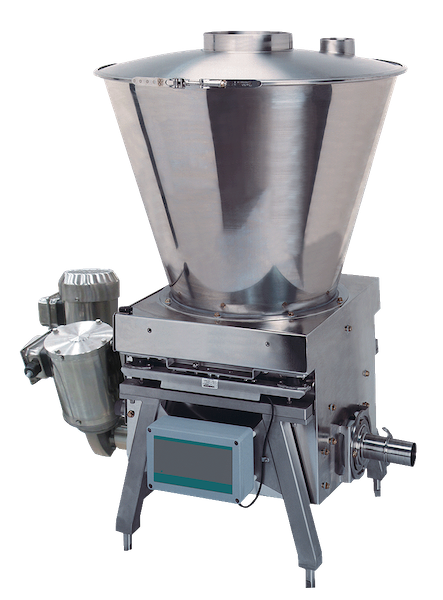
Screw Feeders
With a huge range of models and configurations, and over 50,000 units in the field, Schenck’s line of screw feeders can meter nearly any product in any environment. And with their high degree of reliability, precision, and customizability, they often provide the best performance for these applications on the market. The characteristics shared by all feeders are listed in the table, and options for each model class are detailed below.
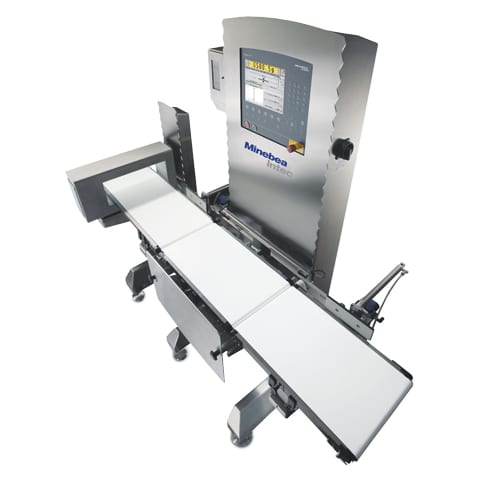
Checkweighers
Checkweighers Checkweighers ensure product is not over or under-weight. They convey product over segments of belts that rest on load cells, which provides an advantage when weighing heavy product, and a disadvantage at very high belt speeds. They...
